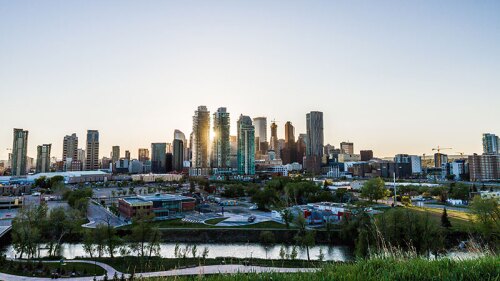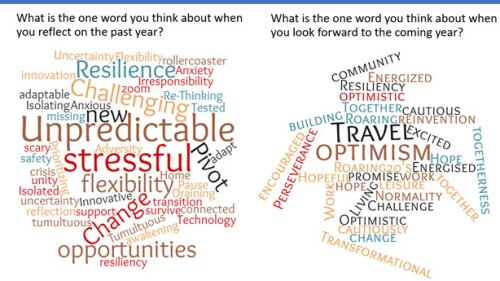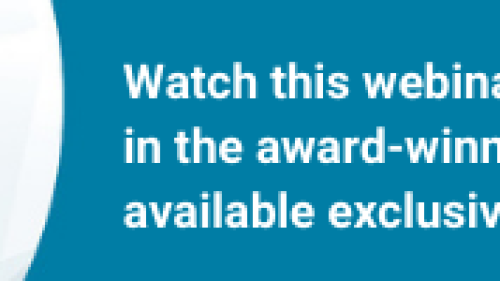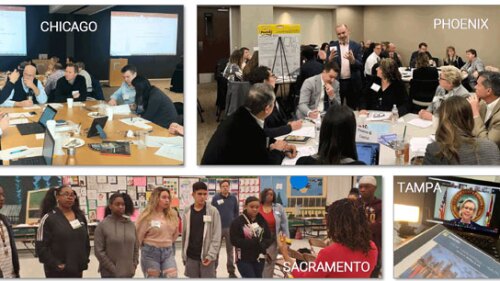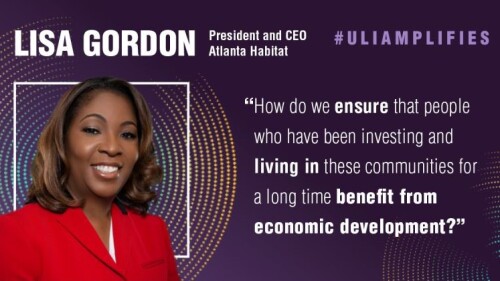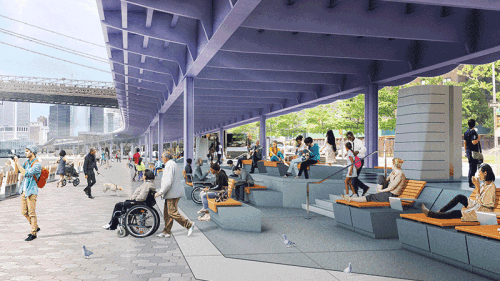<b>Equitable Development</b>
Developers share how different cities deployed creative ideas to help maintain urban vitality and business opportunities despite restrictions on public gatherings. Their successful techniques may outlast the pandemic.
A recent ULI webinar—with member speakers from ULI Toronto, ULI British Columbia, and ULI Alberta—addressed what leading real estate companies are doing to decarbonize their operations and development in anticipation of regulatory requirements.
While many businesses in the United States have been coping with the impact of the COVID-19 pandemic for a year or longer, the broader availability of vaccines and a rebounding global economy are cause for more optimism than skepticism across the real estate industry, said industry leaders participating in a recent ULI webinar. Industrial, self-storage, and single-family rentals have been some of the sectors surging, while laggard sectors are still betting on a burgeoning recovery.
As part of the 2021 ULI Virtual Europe Conference in February, high-level ULI members from across the global finance and investment sector gathered virtually to discuss capital flows, real estate market dynamics, and debt and equity markets. Among the trends discussed were an acceleration of deglobalization, shifting from “just in time” to “just in case” deliveries, and more interest in the hyperlocal, also characterized as “love thy neighborhood.”
As the new appointees at the U.S. Department of Housing and Urban Development settle into their roles, they face challenges both old and new. Ethan Handelman, the new deputy assistant secretary of the agency’s Office of Multifamily Housing Programs, addressed the 2021 ULI Housing Opportunity Conference in March.
Between January and March 2021, Urban Landpublished a series of articles chronicling the efforts of member-led task forces organized by ULI district councils in Chicago, Phoenix, Sacramento, and Tampa to address local policy and regulatory barriers to creation of healthier and more equitable places. These initiatives were part of ULI’s District Council Task Force for Health and Social Equity Project.
ULI has been working in collaboration with a select group of corporate members to produce a “roadmap” for social value measurement that identifies the obstacles, gaps, frameworks, and tools that are available to set targets, manage and measure social impact, and examine best practices already applied from across the real estate industry.
Northern Italy, one of the hardest-hit areas during the early days of the COVID-19 pandemic, is poised to come out of the pandemic far stronger, with a greater emphasis on green space and social cohesion, said Pierfrancesco Maran, deputy mayor for urban planning, green areas, and agriculture of the municipality of Milan, speaking at the 2021 ULI Virtual Europe Conference.
As part of Black History Month, ULI is spotlighting some of the incredible work of our Black members, including Lisa Y. Gordon, president and CEO of Atlanta Habitat for Humanity, who is responsible for advancing Atlanta Habitat’s mission to create affordable housing.
Collaborative efforts were celebrated at a Centre for Liveable Cities World Cities Summit Preview event on climate resilience in January, which explored how to accelerate cooperation between the public and private sectors.

